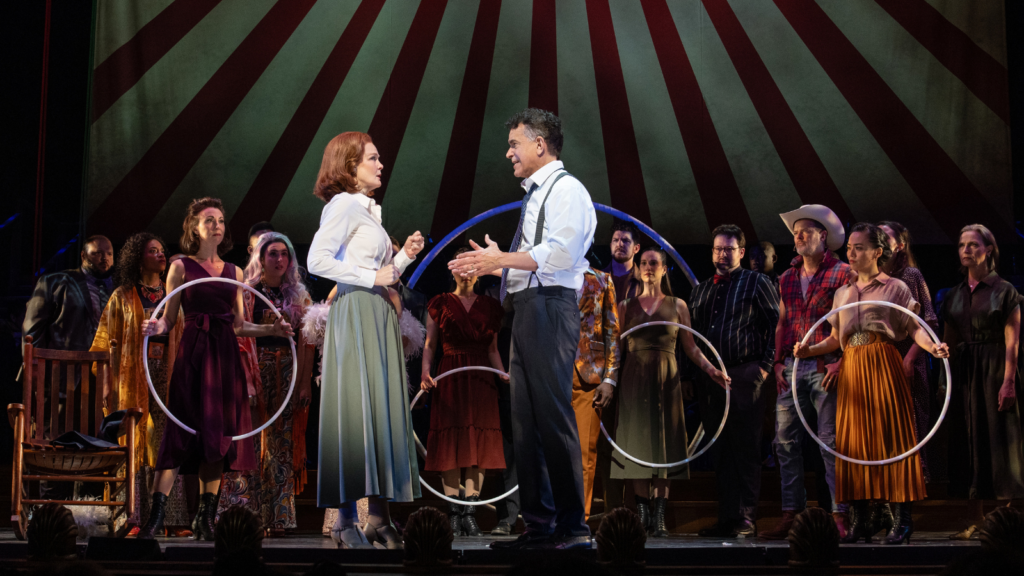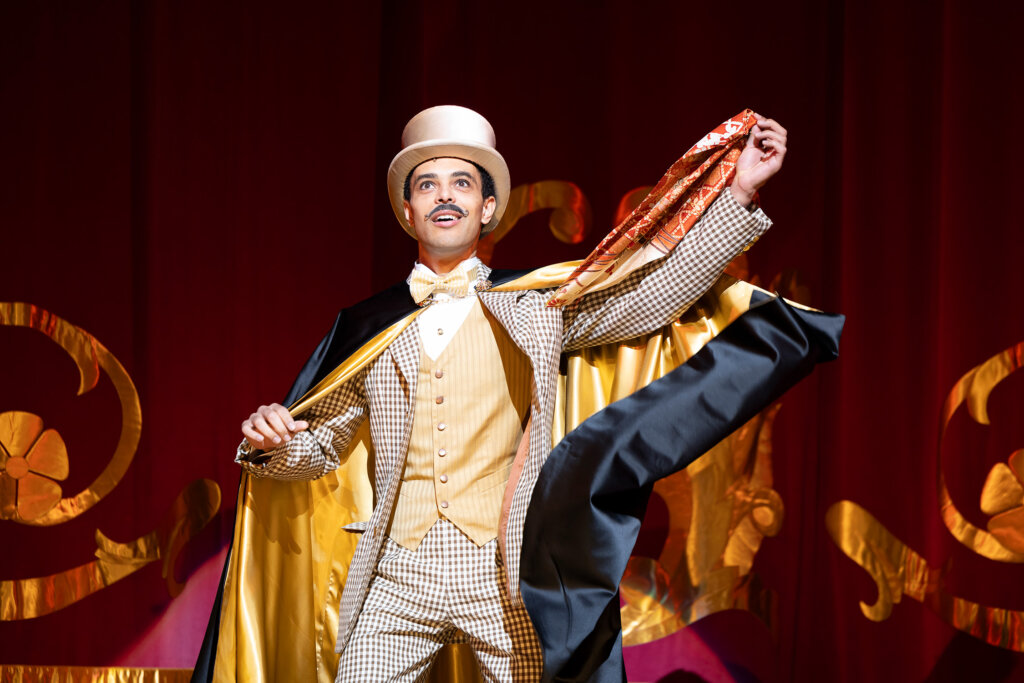Title: Die Verheißung
English title: The Road of Promise
Venue: Anhaltisches Theater Dessau
Conductor: Antony Hermus
Date: 28 February 2013 (premiere)
Event page
Weill’s largest stage work, Der Weg der Verheißung, has tantalized connoisseurs of music and theater ever since it premiered in New York as The Eternal Road in 1937, but most theatergoers have never had a chance to experience it. The sprawling four-act show, which combines a story about a modern synagogue under threat of a pogrom with the stories that define Jewish heritage from the Old Testament, packs tremendous musical and dramatic power. But the demands of casting, sets, and staging have made revivals difficult–only one full production has taken place since 1937, which played in Chemnitz, New York, Cracow, Tel Aviv, and Hannover in 1999 and 2000. A recording issued by the Milken Archive of American Jewish Music in 2004 contains only about one-third of the score.
Now there is a simpler way to present this fascinating yet mysterious work to audiences. A brand-new oratorio version, Die Verheißung, has been conceived and edited by Ed Harsh (who also prepared the score for the stage revival) for large chorus (sometimes divided), five or six vocal soloists, two speaking roles, and orchestra (including organ and guitar). The oratorio runs a little less than two hours and consists of fourteen scenes, including the stories of Abraham, Moses, Ruth, David, and the modern congregants drawing strength from the past to deal with their oppressors in the present.
The new version premiered at the Kurt Weill Fest Dessau on 28 February 2013. The chorus, orchestra, and soloists of the Anhaltisches Theater were conducted by Antony Hermus. Available in both English and German versions, the oratorio is published by European American Music.
Features
Learn more about Die Verheißung
Learn more about Der Weg der Verheißung
Reviews
“In fourteen musical numbers, which occasionally flow directly into another, the composer manages to create gripping images of happiness, struggle, doubt, hope. . . . Weill’s musical idiom never strays from tonality, although it sharpens many a chord, and creates many dramatic and forceful accents, but also holds back and occasionally lets solo instruments such as the organ accompany the action. Where the dramatic situation allows it, one can hear familiar tango sounds from the Threepenny Opera and song-like strains as in The Seven Deadly Sins, cheeky tunes from Berlin, or 1920s battle songs in the style of Eisler. . . . Ed Harsh’s adaptation made a seamless, two-hour oratorio out of the massive, four-act stage work. . . . Kurt Weill was an expressionist, a communicative artist. His musical idiom is lively, understandable, immediately appealing. Music like monumental building blocks at the shout, ‘Messiah where are thou?’–and simple as a folk-song at the prayer, ‘O king of the world.’ That’s what one wants from good contemporary music–and that’s why the audience in Dessau rewarded the performers with long, heartfelt applause.”
–Michael Stolle, Mitteldeutsche Zeitung (in German)
“The hugely celebrated world premiere of the oratorio Die Verheißung, adapted by American composer Ed Harsh, caused a sensation. . . . Despite the necessary cuts to the original version, the audience could easily follow the plot. . . . Weill’s score–which is based on original Jewish music and also connects with modern influences–was played by the orchestra in all its facets and inherent fascinating nuances with great engagement. Under the concentrated overall direction of General Musical Director Antony Hermus, music and story blended into a strong overall statement.”
–Helmut Rohm, Magdeburger Volksstimme (in German)


